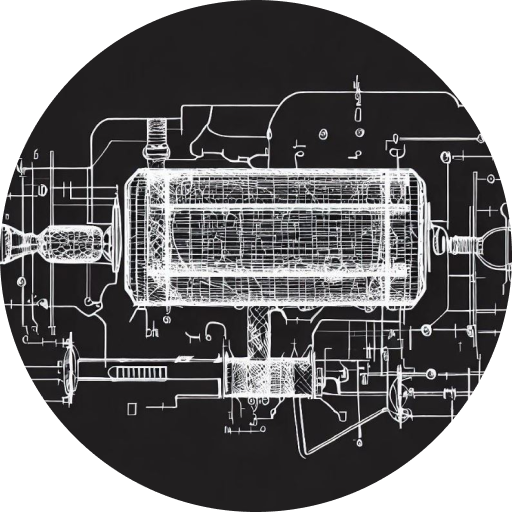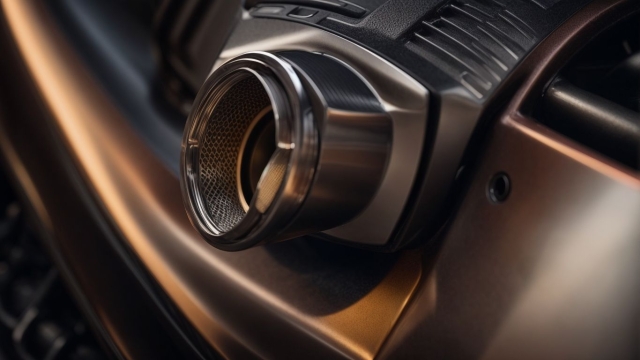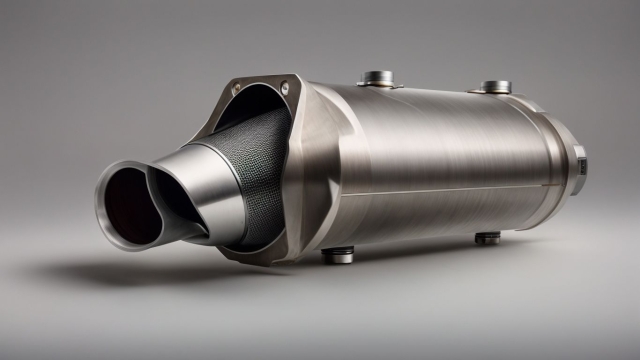Improve Performance with a Catalytic Converter for Nissan Altima – Ultimate Guide
.jpg)
Catalytic converters are a key piece of the puzzle in decreasing bad emissions from vehicles. They change toxic gases, like carbon monoxide and nitrogen oxides, into less harmful ones like carbon dioxide and vapor. This helps reduce air pollution and makes sustainability better.
Aside from the environmental advantages, catalytic converters also affect vehicle performance. They make burning fuel more complete, which increases engine power and cuts fuel use. This saves money and decreases the use of fossil fuels.
An amazing thing about catalytic converters is that they handle high temperatures well. The internal parts are made of tough materials like platinum, palladium, and rhodium, which can handle the heat from exhaust gases. This ensures that the converter works even in tough conditions.
The story of catalytic converters goes back to the 1970s when rules about emissions started due to worries about air pollution. Car companies had to create technology to reduce pollutants from vehicles. Now, catalytic converters are a normal part of most cars, like the Nissan Altima.
In conclusion, catalytic converters have changed the car industry by reducing emissions and improving performance. Their growth and use are needed to make transportation more sustainable in the future.
What is a catalytic converter and how does it work?
A catalytic converter is an essential part of a Nissan Altima’s exhaust system. It helps lessen harmful emissions and changes them into less damaging gases. It has a catalyst, usually made of platinum, palladium, and rhodium, which prompts chemical reactions. These reactions change carbon monoxide and nitrogen oxides into carbon dioxide, nitrogen, and water vapor. This happens through two major reactions: reduction and oxidation.
For the reduction reaction, oxygen atoms are removed from the exhaust pollutants. Carbon monoxide (CO) and nitrogen oxides (NOx) react with the catalyst over a large surface area. This makes them turn into carbon dioxide (CO2), nitrogen (N2), and small amounts of water vapor (H2O). This minimizes the amounts of these dangerous gases that the vehicle emits.
The oxidation reaction is when unburned hydrocarbons (HC) combine with oxygen on the catalyst’s surface. This produces carbon dioxide and water vapor. This further lessens pollution created by incomplete combustion.
Some modern catalytic converters have extra processes like NOx reduction using a urea solution called AdBlue or selective catalytic reduction (SCR). These advanced converters help further reduce emissions by converting more dangerous pollutants.
Catalytic converters have to meet certain standards set by regulatory authorities. This guarantees they effectively reduce emissions.
To sum up, catalytic converters are very important in decreasing air pollution caused by vehicle exhausts. They help minimize dangerous emissions by facilitating chemical reactions. They turn pollutants into less harmful substances like carbon dioxide, nitrogen, and water vapor.
Fun Fact: The Environmental Protection Agency (EPA) has required catalytic converters in all new vehicles sold in North America since 1975. This follows emission standards.
Importance of a catalytic converter in a Nissan Altima
A Nissan Altima’s catalytic converter is key for reducing emissions. It forms part of the exhaust system, transforming toxic gases into less harmful substances before they are released into the air.
The converter is designed to minimize pollutant output. It contains a catalyst, often made of platinum, palladium and rhodium, which converts carbon monoxide into carbon dioxide. It also turns nitrogen oxide into nitrogen and oxygen, and unburned hydrocarbons into water and carbon dioxide.
This helps improve air quality, protecting both the environment and public health. It also meets emission regulations set by government authorities. Non-compliance can lead to penalties or even the vehicle’s deregistration.
A faulty or damaged converter can cause engine performance and fuel efficiency to drop. Residue or blockage can restrict exhaust flow, reducing engine power. Regular inspection and maintenance of the converter is necessary to prevent such issues.
Signs of a faulty catalytic converter
Is your Nissan Altima consuming more fuel than usual? Is its acceleration or power decreasing? Are you smelling strong odors like sulfur or rotten eggs? Is the exhaust noise louder? Has it failed an emissions test? If you answered “yes” to any of these questions, it could be due to a faulty catalytic converter. Ignoring this issue can result in further damage and costly repairs, so it’s important to address it promptly.
Here are four tips to help avoid a catalytic converter issue:
- Schedule regular maintenance checks.
- Use high-quality fuel with fewer impurities.
- Try to combine multiple errands into longer drives.
- Avoid aggressive driving habits.
By following these suggestions, you can keep your Nissan Altima’s catalytic converter in good condition and ensure optimal engine performance. It’s best to consult with a professional mechanic to diagnose the problem accurately and take the necessary steps to resolve it.
How to replace a catalytic converter in a Nissan Altima
Replacing a catalytic converter in a Nissan Altima requires paying attention to detail. Here’s a guide to help you out:
- Jack up the car using a hydraulic jack and ensure it is on jack stands.
- Locate the converter near the exhaust system – it looks like a metal canister.
- Unscrew and detach any bolts or clamps connecting the converter to the exhaust system.
- Carefully slide out the old converter.
- Install the new converter by lining it up with the exhaust pipes. Securely fasten it, making sure there are no gaps or leaks.
Be sure to wear protective gloves and eye goggles throughout the process. Dispose of the old converter at an authorized recycling center due to its harmful components.
For efficiency, upkeep, and longevity:
- Schedule routine inspections of the exhaust system.
- Choose reputable brands when buying a new converter.
- Follow emission standards and local regulations regarding catalytic converters.
By following these steps, you can replace your Nissan Altima’s catalytic converter while maximizing functionality and minimizing environmental impact.
Tips for maintaining a catalytic converter in a Nissan Altima
A Nissan Altima’s catalytic converter needs regular attention to stay in good shape. Here are some tips to help maintain it:
- Schedule routine check-ups and follow the maintenance guide.
- Keep the engine in top condition. Check spark plugs, oxygen sensors, and fuel injectors.
- Don’t idle too long. Unburned fuel will clog the converter and reduce efficiency.
- Use high-quality fuel. This keeps deposits from building up on surfaces.
Neglecting maintenance can be expensive. So, follow these tips for a longer lifespan and a cleaner environment. Driving habits also have an effect. Avoid sudden acceleration and stops.
Fun fact: Eugene Houdry invented catalytic converters in 1950. They control vehicle emission levels.
Conclusion
Summing up, a catalytic converter for a Nissan Altima is crucial. It cuts down on harmful emissions and ensures that the engine runs properly. It’s a must-have part.
When selecting one, there are a few things to remember:
- Make sure it fits your Altima’s model.
- Choose a top-notch converter from a quality manufacturer.
Catalytic converters for Nissan Altimas must meet strict emission rules set by authorities. This safeguards both the car and the environment.
Now, here’s an amusing tale. A friend of mine ran his Altima through an emissions test. Surprisingly, the results showed too much pollution! Further inspection revealed that thieves had opened the converter, stealing the valuable metals inside. This incident emphasizes the importance of having a working catalytic converter for every Nissan Altima owner.
- Upgrade Your Honda Accord with the Best Catalytic Converter for Enhanced Performance - October 30, 2023
- Boost Your Chrysler 300’s Performance with a High-Quality Catalytic Converter - October 30, 2023
- Enhance Your Jeep Liberty Performance with a Catalytic Converter - October 30, 2023









